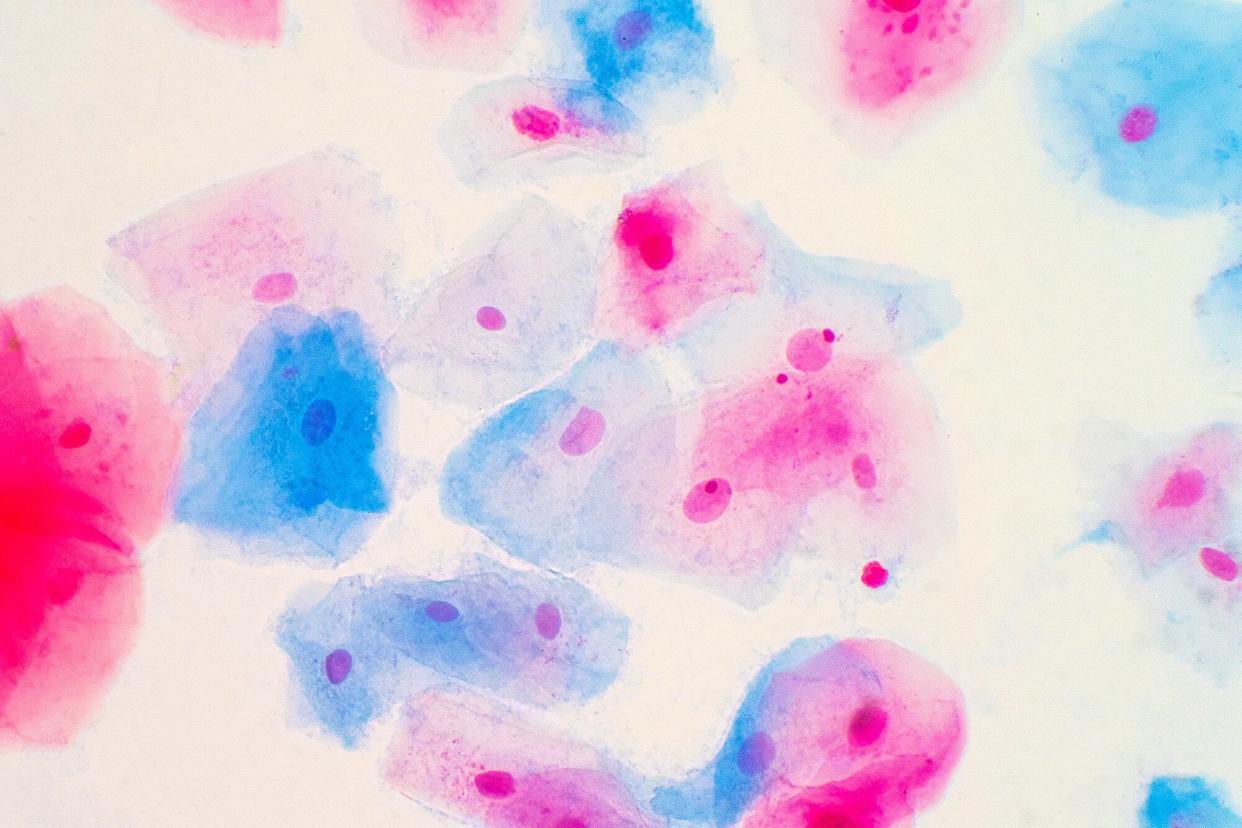New Study Shows Stage 4 Cervical Cancer Cases Have Increased Since 2001

Getty
A new study published in the International Journal of Gynecological Cancer reported an increase in stage 4 cervical cancer cases between 2001 to 2018.
The data also show that Black women were more likely than white women to develop late-stage cervical cancer.
The study was based on nearly 30,000 women who had been diagnosed with stage 4 cervical cancer, which has a survival rate of about five years.
When analyzing the trends over time, researchers found late-stage cervical cancer increasing at a rate of about 1.3% per year overall. The largest increase was found in a type of cancer called cervical adenocarcinoma, which is the deadliest form of cervical cancer, at an average annual percent increase of 2.9%.
Although Black women are more likely to develop stage 4 cervical cancer, white women in the South ages 40 to 44 make up the group with the highest yearly increase in the disease, at a rate of 4.5%.
RELATED VIDEO: Widow of Young Dad-to-Be Who Died of Rare Cancer Says Their Newborn Daughter 'Keeps Him Alive'
Speaking to TODAY last week, the lead researcher in the study, Dr. Alex Francoeur, a fourth year OB-GYN resident at UCLA, explained her team's findings. "Paradoxically, when we look at early stage cancer, we see that it has decreased, but when you look at stage IV metastatic cervical cancer, the opposite is true: The rates have increased," Francoeur said.
"Unfortunately, there's no easy explanation for how this can be improved," she added.
For Dr. Francoeur, the data only partly explain the pattern, and more research needs to be done to understand the causes of the increases.
RELATED: Louisiana Mom Says She Was Denied an Abortion Even Though Baby Has Terminal Condition
It was also noted that white teenagers from 13 to 17 were the least likely to get the human papillomavirus vaccination at 66.1% compared to non-white teenagers at 75.3%. The virus, also known as HPV, can lead to cervical cancer.
According to the American Cancer Society, cervical cancer screening with an HPV test alone is recommended every 5 years for everyone with a cervix from ages 25 until 65. If HPV testing alone is not available, people can get screened with an HPV/Pap Co-test every 5 years or a Pap Smear every 3 years. HPV vaccinations are also recommended.

